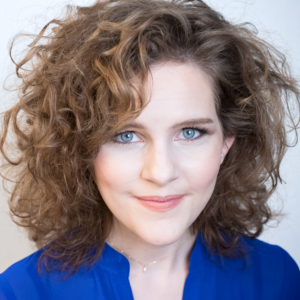
Laura Beth Hooper
Laura Beth Hooper (she/her) joined the YNPNdc Board of Directors as Treasurer in July 2021. She currently serves as the Finance and Operations Associate for the Global Alliance for Improved Nutrition.
One of the choices a non-profit organization must make as it pertains to the organization’s financials is which bank they will do business with. If an organization truly wants to act with purposeful intention through all that they do, this is an area that should be given more serious consideration beyond which bank has local branches and good interest rates.
As the newly elected YNPNdc Treasurer, I recently had to help the organization choose a new bank account. Over the course of their careers, many nonprofit professionals are likely to find themselves in a similar position. It’s not an easy task, but is crucial for the longevity of an organization. Here are a few of the factors I considered to narrow down our choices:
National vs. Local
First, I considered whether YNPNdc should choose a national or a local bank. Nonprofits with multiple locations or with geographically dispersed boards of directors may find that a large, national bank adds significant convenience with branch locations and ATMs. However, because YNPNdc and its board are entirely based in the DMV, I decided to research local banks that could provide more personalized service and have closer ties to the D.C. community.
Products and Features
Many banks offer a wide array of products and features to attract new customers. To cut through the noise, I created a list of the “must-have” products that our future bank would need to support YNPNdc’s operations. Given YNPNdc’s minimal overhead expenditures, the list of essential products was quite brief: a business checking account, a money market account, online banking, mobile deposits, and no-fee ATM access.
In addition, I gave particular weight to banks with a nonprofit checking account product or a nonprofit department. While small business checking accounts would suffice for most nonprofits, it can be particularly helpful to have a person of contact at the bank with specific knowledge about nonprofits and their specific needs.
Interest Rates
Many banks no longer post their interest rates on their website due to frequent fluctuations. So, after I had narrowed my list, I called the banks’ customer service lines to collect their most current rate information. At the time of this posting, interest rates are low no matter the institution, so this did not significantly factor into the decision-making process.
Values
As a final point of criteria for guiding my research, I sought out institutions that shared or complemented YNPNdc’s values as an organization. I used Mighty Deposits, a website that aggregates data on banks’ diversity of leadership, community investment, and other metrics relating to their role in the community. I also perused the “About Us” and philanthropy pages of the institutions on her list to see what the banks chose to highlight about themselves and how they articulated their values and mission.
Reputation
Finally, I conducted research to learn about other customers’ experiences with the final banks on her list. In addition to general Google searches (such as “Bank Name + Controversy”), I checked the Better Business Bureau to see how the banks were rated and whether there were any notable patterns of customer complaints.
In the end, I narrowed our list of bank possibilities to three institutions that met the criteria established above. I was able to confidently take my recommendation to the YNPNdc Board of Directors to discuss and ultimately vote on the right choice for us.
When considering which bank to use for your nonprofit, you may want think through the criteria that our organization has gone through here, but feel free to add your own as well. The decision may seem small, but if it’s done right, it can have an impact on not only your organization, but also others in your community, for years to come.
